

Berthon Winter Collection

Latest issue

August 2024
In the August 2024 issue of Yachting World magazine: News Few finish a tempestuous Round The Island Race European rules are eased for cruising to France and Greece Olympic sailing…

- Yachting World
- Digital Edition

The offshore skills you need to be bluewater ready
- April 30, 2021
What are the skills you need before casting off on a transocean or bluewater adventure? Offshore training skippers share their advice

John Kretschmer’s Quetzal heading off on a bluewater training sail. Photo: Vivian Vuong/Ocean Passages
You might have a departure day circled red in the diary and be furiously working through a to-do list to get there. Or maybe you’re considering a bluewater sailing adventure in future, and starting to think through the preparations you need to make. You might even have postponed your big trip, and be considering how to make the most of an extra sailing season at home.
Either way, in between the jobs lists of boat upgrades and household admin and everything else, it can be easy to overlook one area of preparation: yourself. How ready, really, are you?
Are there skills or areas of knowledge you and your partner or crew could work on? Would some coaching or additional experience boost your confidence? Now, with a lot of people’s sailing plans in hiatus, could be just the time to learn.

Learning to anticipate the weather conditions leads to more relaxed sailing, says 59° North’s Andy Schell. Photo: 59° North Sailing
Regardless of whether you followed an RYA/ASA training pathway or similar, or have learnt through time on the water and poring over books and YouTube tutorials, some bluewater skills just can’t be practised until you have to do it for real.
Anchoring in coral, for example, is a hard situation to replicate. Nevertheless, there are a small number of specialist training providers who offer skills coaching specifically for sailors who are preparing for bluewater sailing and ocean sailing. We asked these hugely experienced training skippers which skills they think are worth focusing on.
Beyond your comfort zone
Amanda and John Neal have run Mahina Expeditions for over 30 years, offering onboard teaching courses, as as well seminars and their own coaching manuals.
This year they’re running 9-12 day ‘Ocean’ courses in the Pacific north-west. The curriculum, which includes training in storm survival techniques, reefing techniques , MOB retrieval practice using a life sling, learning how to make sail repairs and rig inspections, diesel and electrical training, and navigation skills from celestial navigation to sat comms, is a great starting point for anyone wondering where they might have a skills gap.
“Our goal is to have people ready to circumnavigate after 10-12 days with us,” explains John Neal. For some sailors, going on a course like this is about accelerating the learning process, for others it’s about pushing themselves out of their comfort zone. “That’s why a lot of clients join us, because they would much rather go through these kind of testing scenarios with some structure and some backup.”
Pragmatically, doing an offshore training course may help reduce insurance premiums. “There’s so few offshore insurers in the world, and they all know who we are and in many cases send people to us,” explains John Neal.

Invaluable real-time weather analysis. Photo: Mahina Expeditions
He adds: “We encourage people to get documentation for everything they learn. Present this to the insurance company because insurers are just working on risk.”
“Your commitment to gaining as much knowledge and experience before setting off will save you time and money, and ensure you have the best chance of realising your goals,” adds Amanda. “Often these plans won’t quite go your way, but this just readies you for the realities of the life at sea.”
Weather forecasting for bluewater passagemaking
“The skill I’m most passionate about teaching, and the one that will give you the biggest bang for your buck, is weather forecasting – interpreting GRIB files, reading synoptic charts and forecasts and anticipating how you and your boat will handle changing weather at sea,” says Andy Schell of 59° North, which offers offshore passages with training opportunities on its Swan 48 and 59 yachts.
Article continues below…

Bluewater Sailing Techniques Part 4: sailing downwind with a poled out headsail
Discover how to sail with a poled out headsail in our latest Bluewater Sailing Techniques video

Fast Bluewater Cruisers: the best new performance bluewater catamarans on the market 2018
Many monohull sailors who are thinking of converting to mulithulls for distance cruising seek a combination of the speed and…
“If you master this, there should rarely be surprises offshore. This, combined with boat handling skills – not just basic sail trim, but rather how you reef the sails to eliminate wear and tear (flogging), how you set up a downwind preventer system, how you trim sails to make life easier on your autopilot – will, more than anything else, make passagemaking more pleasant and drama free.
“I’ve found that by learning to anticipate the weather and make adjustments to the boat’s sail plan and course ahead of time – being proactive rather than reactive – I’m much more mentally at-ease at sea and enjoy the passage more. And learning about weather forecasting is something that’s perfectly suited to lockdown times.”
Schell suggests a good exercise is to practice creating your own routes, before getting the computer to calculate an optimal route. “I keep it simple: based on the weather pattern, is this passage going to be rhumbline? Or will it favour one side or other of the rhumbline?

Know how to interpret your weather data. Photo: 59° North Sailing
Remember too, with offshore cruising, weather routing should be optimised for comfort, not speed. Sometimes spending an extra day at sea beam-reaching is preferable to bashing to windward if you can make a slight route or timing adjustment.”
Schell uses LuckGRIB software on an iPad offshore, into which you can input your own boat’s polars. “In ‘cruising mode’ I set our performance at 75-80% of the polars, knowing I can match or exceed these predictions most of the time.”
Jeremy Wyatt, who has seen hundreds of cruisers off on World Cruising Club rallies, agrees that forecasting is a skill to prioritise. “While ocean weather patterns are often more predictable than those in coastal waters, you need to be able to look at the big picture – literally, if you are using GRIBs.
“Weather forecasts for oceans cover large areas and are much less detailed than closer to shore, so you need to understand how the forecasts are produced, their limits and importantly why and where to expect variations.
“There are some excellent ocean weather courses and it is well worth investing in this type of training.”
For learning resources, Jeremy Wyatt and the Neals both recommend the RYA Weather Handbook by Chris Tibbs.
“If there isn’t a marine weather course in your area, consider signing up for an online course through www.starpath.com ,” suggests John Neal. “Also, start studying Windy.com for the area that you’ll be cruising. If you’re heading further afield, Jimmy Cornell’s World Cruising Routes provides overview of both regional and specific passage weather patterns.”

Coaching from the cockpit. Photo: Sailing Totem
Other recommendations include a subscription to morganscloud.com by sailor John Harries (‘a bargain’ according to Schell at around $20 per year), and free tutorials available on Luckgrib.com . “Behind it all is a real understanding of the different weather models, how they work, what they do and don’t do, etc. Even if you don’t use the software [it’s] very helpful,” Schell says.
Downwind helming
Often bluewater sailing in tradewinds will, if you’re lucky, involve many miles of sailing deep downwind. However, even relatively experienced sailors may not have sailed in those conditions for sustained periods, says John Kretschmer, who has taught over 130 offshore training passages.
From 2021 John Kretschmer Sailing is running offshore training voyages over a five-year circumnavigation.
“Be prepared for long periods of downwind and off the wind sailing. This might sound obvious but most coastal sailing is upwind, or reaching. A lot of times the only serious downwind sailing we get is racing, with a crew, fully tuned in to the spinnaker. That’s not the way you will sail off the wind on a long passage.

Hone your downwind sailing skills in big breeze conditions. Photo: 59° North Sailing
“We go to great lengths to plan passages with winds, which often means deep reaching or running,” Kretschmer points out. “And yet, the boat is often not set up for it, or the crew is completely surprised how challenging it is to deep reach in 25 knots apparent wind with 4m following seas.
“You need to prepare for this. First, you need to have a well-designed boom preventer system rigged and ready before you head offshore.
“Secondly, you should have a whisker pole on a track and be well versed in poling out the headsail. This is a technique that you must practice before you shove off. Trust me on this one; you’ll use the whisker pole far more than you think. With the boom prevented and the headsail poled out, the boat settles down.
“You also need to hone your downwind helming skills. I take people to sea for a living, some really good sailors too, but I’m always surprised how few have good, deep reaching helming skills. Consider your self-steering, either autopilot or wind vane; can they handle serious, downwind conditions? And can you handle steering in big seas? When it really matters you’ll need to steer with confidence.”
To develop downwind helming skills, you’ll need to put yourself in the right situation to learn. “There are some online videos that do help with downwind helming concepts, but it is one of those things that really only comes with practice,” says Kretschmer.
“On-boat coaching is a great way to go. A ‘pre-passage passage’, with a coach or able skipper, is a really good idea. Be sure to turn it into a skills course, not a pleasure cruise. Turn the autopilot off for the duration of the course, that’s incredibly instructive. It seems crazy to go searching for big seas but it’s well worth it. Our ‘heavy weather’ passages sell out a year or so in advance!”
Bluewater Reefing
One to practice, rather than be taught, but taking a fresh look at your reefing routines and rehearsing them will pay dividends, says Kretschmer. “Make sure your reefing skills are fresh, and your reefing system is effective.
“Consider this scenario: it’s blowing hard, you’re sailing on a deep reach and decide you need the second, or even third reef in the mainsail. Your crew, the family, is feeling a little dodgy, a little scared, the boat is rolling and feels close to being out of control, and you need less sail.

Practise makes perfect when it comes to your reefing routines. Photo: Vivian Vuong/Ocean Passages
You can’t just come up into the wind and start flogging the sail violently, that strategy does not work offshore in a blow, at least not for long.
“You need a strategy and the right system to allow you to a pull another reef into the main, and it’s a combination of having a good mainsail track system, and coordinated sheet and halyard control.
Practice this technique. For some reason we’re rarely taught this but offshore, with a small crew, this is the skill that will make your life better.
“Also, be sure that your headsail furling system is beefy enough to reef without completely flogging the headsail. That’s where the dangers lurk, flogging sails snarl furling lines, flailing sheets break things, and suddenly just shortening the headsail has created an emergency. These are skills, and techniques, that you can practice.”
Another skill that is hard to learn, but key to master, is anchoring. “Many cruisers in UK waters don’t often get the chance to practice their anchoring skills, and certainly not in sand or coral waters,” points out Jeremy Wyatt.
“Having a reliable windlass, sufficient length of chain (100m for the Pacific), and two spare anchors are all key for a bluewater sailing yacht.
“You should have confidence in your anchoring technique. Being able to drop in just the right spot; being aware of currents and planning for wind shifts, and above all, knowing when it isn’t right and pulling up to try again. If you are not confident that your boat will be where you left it when you go ashore, you won’t be able to enjoy exploring the exotic places you are in.”

Seek advice on anchoring techniques. Photo: Tor Johnson
If you’re not confident in your technique it’s worth seeking out experienced skippers to glean advice from.
“In my experience it is a skill picked up from skipper to crew, and in conversation with other cruisers,” adds Jeremy Wyatt.
“YouTube is a good resource as well. Forums will add value for different anchor types, especially across specific boats and cruising areas. Then it is a case of ‘practice makes perfect’.”
Celestial navigation
“Celestial navigation is a foreign concept to most people and it can seem daunting with heaps of confusing mathematic calculations and terms, but there are methods that can be simplified and make it fun,” says Nathan Zahrt of Ocean Passages, which offers sail training passages, mostly between the US and Caribbean, and on-boat coaching.
“There’s no doubt that we live in the GPS age, but there has been a recent resurgence in celestial navigation. Celestial navigation is often thought of as just a skill to have as a back up for more modern methods of navigation, but it can be so much more than that.
The fundamental skills can be used as quick checks on position and heading without even looking at a screen.

Celestial navigation is making a comeback. Photo: 59° North Sailing
“Dead reckoning is the basis for celestial navigation and once a sailor is able to dead reckon, they’ll always have a good idea of their position and course. Knowing where the sun is or where stars and other celestial bodies rise can let you know you’re on course with just a glance at the heavens. The finer skills make every sailor safer and more connected to the natural world.”
Celestial Navigation, The Minimal Manual by Bruce Steely (new in 2020) is “the most simple and comprehensive celestial nav book that I have seen,” according to Zahrt. The Practical Celestial Navigation Facebook group includes frequent webinars and workshops for beginners through experts. Andy Schell also recommends reednavigation.com taught by Frank Reed.
Engine maintenance
“Diesel engines are daunting for many sailors. I meet sailors all the time who are completely intimidated by their diesel, so much so that they just say, ‘I’ll never learn how this thing works,’ and resign themselves to relying on mechanics if anything ever goes wrong,” says Zahrt.
“Once out crossing an ocean, however, there’s nobody to rely on but themselves.”

Engine knowledge is vital at sea. Photo: Mahina Expeditions
Jeremy Wyatt says that taking a diesel maintenance course can be a good investment: “Being able to do the basics yourself saves a lot of time in organising local mechanics. But most importantly, having the confidence to troubleshoot problems, and fix them (while at sea, or to avert a potential problem) is a tremendous asset.”
“Before heading offshore, you must know how to change fuel and oil filters, the water pump impeller, fuel lift pump and adjust belt tension,” advises Amanda Neal.
Nigel Calder’s esteemed handbooks Marine Diesel Engines and Boat Owner’s Mechanical and Electrical Manual are still widely recommended. There is an online diesel maintenance course at boatersuniversity.com
Communication
So-called ‘soft’ skills are often overlooked, but in situations where you may be challenging yourself and those around you, interpersonal skills become increasingly important.
“The most important skills to develop are leadership and communication, which many people neglect,” says Teresa Carey of Morse Alpha Expeditions, which runs coastal and offshore sail-training expeditions between Maine and Bermuda.
“Most accidents at sea don’t happen because the crew as a whole lacks the necessary skills. Most happen because of a communication breakdown – even if people don’t like to admit it.

Interpersonal communication skills are often overlooked when it comes to training for life on passage. Photo: 59° North Sailing
“In the maritime world, there’s a tradition of having a strict hierarchy. I often hear people say, ‘I’m the captain, I have the final say.’ I have concerns about people who need to express this overtly. Sailing should never get to ‘the final say.’
“We’ve been in some hairy situations, and still [my husband] Ben and I have always been co-captains. It has never been a problem. We actively practice communication and leadership skills. We also focus on these skills in our training.
“In addition to technical skills, we give people practical, hands-on training as captain, crew, and co-captain. Many of our students have told us years later that the communication training saved their marriage, and they use our ‘tricks’ on and off the boat.”
Nathan Zahrt recommends the book Crucial Conversations by Al Switzler, Joseph Grenny & Ron McMillan for learning more about communication skills under pressure.
If you enjoyed this….
Yachting World is the world’s leading magazine for bluewater cruisers and offshore sailors. Every month we have inspirational adventures and practical features to help you realise your sailing dreams. Build your knowledge with a subscription delivered to your door. See our latest offers and save at least 30% off the cover price.
- BOAT OF THE YEAR
- Newsletters
- Sailboat Reviews
- Boating Safety
- Sails and Rigging
- Maintenance
- Sailing Totem
- Sailor & Galley
- Living Aboard
- Destinations
- Gear & Electronics
- Charter Resources
- Ultimate Boat Giveaway

Blue Water Sailing School
Blue Water Sailing School is an American Sailing Association certified sailing school, offering courses in Florida, the Virgin Islands, St Maarten and New England.
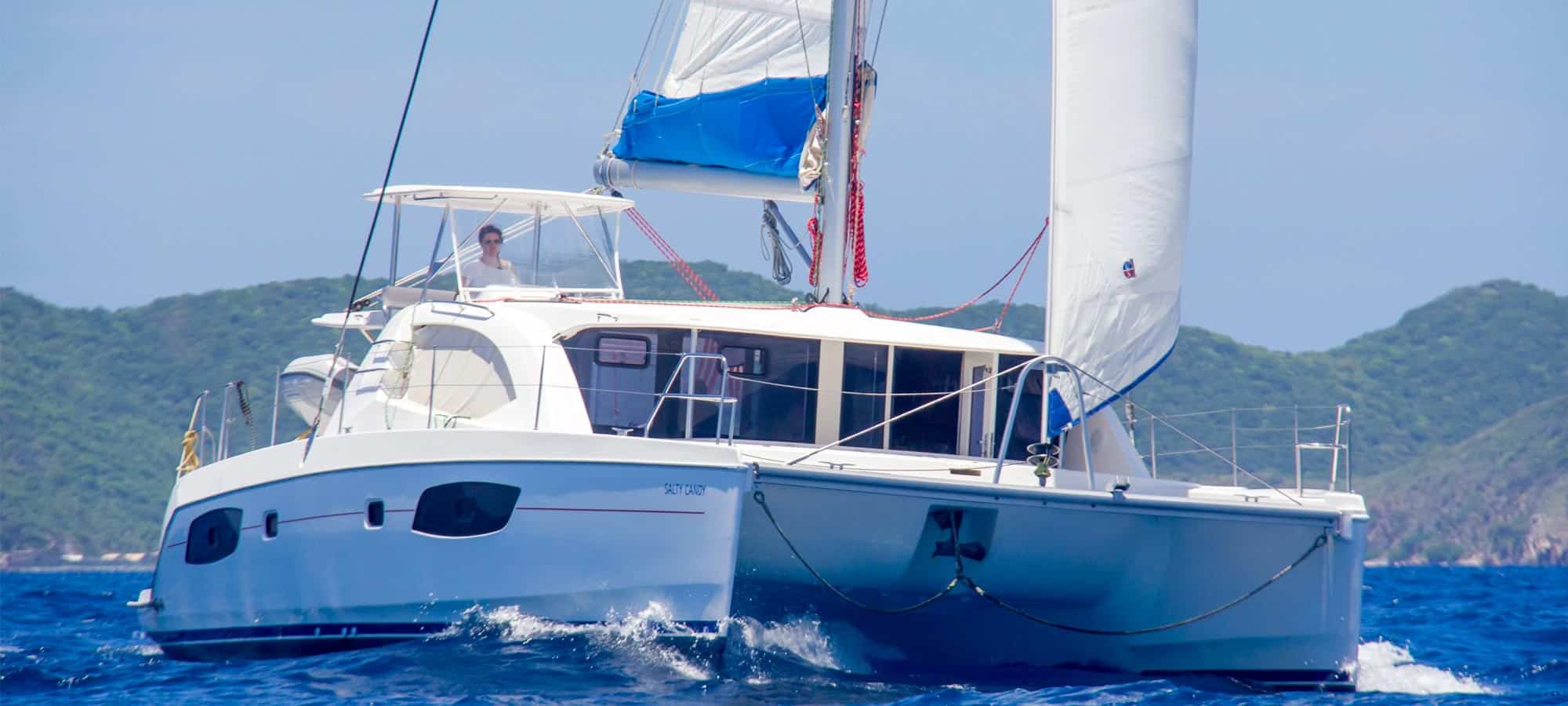
Blue Water Sailing School is an American Sailing Association certified sailing school with lessons for sailors at every experience level. Our week-long, live-aboard cruising and sailing courses give dedicated students the experience and confidence to achieve their dreams of nautical adventure. We’re based in Fort Lauderdale, Florida and have additional locations in Rhode Island, the Virgin Islands, and St Maarten .

Fleet Locations
New England
Boats & Rates
Boat Types: Monohull Sailboats, Multihull Sailboats
Sailing Courses
We offer basic, intermediate and advanced courses in sailing and navigation.
Course A: Bareboat Skipper
Course A+ Cat: Bareboat Catamaran Skipper
Course N: Coastal Navigation
Course C: Advanced Coastal Skipper
Course C+ Cat: Advanced Catamaran Skipper
Course D: Celestial Navigation
Course O: Offshore Passagemaking
924 NE 20 Ave.
Fort Lauderdale, FL
United States, 33304
Phone: 954-763-8464
Email: [email protected]
Website: bwss.com
Social : Facebook
Ready to Plan a Charter?
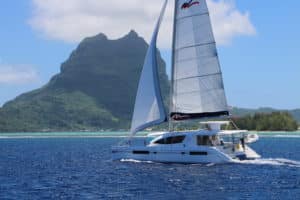
Planning a Charter Itinerary
Use these practical planning tips to make your next yacht charter the best sailing vacation of your life.
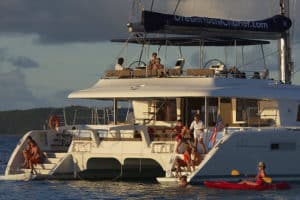
Choosing the Best Charter Option
Not quite ready to skipper but still want to charter? Don’t worry, there are plenty of other options to get you out there.
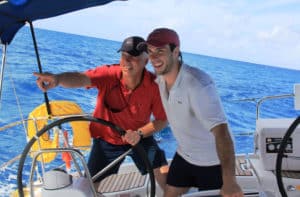
Quick Guide to Chartering
Thinking of planning a charter vacation? Here’s the rundown on why, when, and where to go.
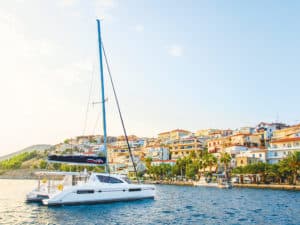
Sailboat Chartering 101
Interested in taking a sailing vacation? Start here! We’ve put together a guide on charter types, locations, qualifications and more.
- Digital Edition
- Customer Service
- Privacy Policy
- Terms of Use
- Email Newsletters
- Cruising World
- Sailing World
- Salt Water Sportsman
- Sport Fishing
- Wakeboarding

Bluewater Yachting
4.6 Average rating: Read reviews
STCW Basic Safety Training is comprised of 4 modules taken over 5 days.
1. Personal Survival Techniques (PST) - 1.5 days 2. Personal Safety and Social Responsibility (PSSR) - .5 day 3. Fire Prevention and Fire Fighting (Basic Fire fighting) - 2.0 days 4. First Aid / CPR (Basic First Aid) - 1.0 day STCW Basic Safety Training focuses on basic safety skills and knowledge in order to provide a framework for safe working practices, emergency procedures and teamwork within the maritime environment.
This course is considered a minimum entry requirement for anyone who wishes to work on yachts or in commercial sector of the maritime industry. It is engaging, challenging and most of all fun! However what you learn during the STCW basic training, could save your own life or that of a crew mate or guest.
STCW stands for the “Standards of Training and Certification of Watchkeeping” as determined by the International Maritime Organization (IMO). The STCW Basic Safety Training course is mandated by ALL flag States for all working seafarers. It is the international standard, approved by MCA, USCG, the Marshall Islands Registry and nearly every leading flag state in the world.
In 2010, the STCW convention was reviewed and ultimately added Security to the basic certification requirement. As a result Bluewater Crew Training in Antibes now offers the Security with Designated Duties module, which runs frequently throughout the year.
STCW Training Centres
Bluewater Yachting have their training centres in the following locations:
- Antibes, France
- Palma de Mallorca, Spain
Customer Reviews
Bluewater Yachting reviews as published on Google:
Stefan Baltes
Average rating: 2 months ago
I recently completed the MCA/OOW 'HELM' course at BlueWater. It was a highly professional training course in a very good training environment. Our coach Lisa was very knowledgeable and experienced. Although I had previous experience with team building and leadership, I was able to significantly improve my knowledge and skills during this training.
Viktor Miljkovic
Average rating: 5 months ago
Amazing team! Keep going! Looking forward to more refreshers in the future.
alberto rizzi
Went to Antibes for the STCW courses and was an amazing experience will come back for sure!!!
Average rating: 7 months ago
All my courses at Bluewater have always gone very well (Captain 3000gt). In January 2023, I attended the refresher course on medical care, which also went very well. Mathieu Le Gall
Aleksandra Cvetošenko
Nice school and lots of courses provided. Most of the instructors are quite professional. Study materials are very good. Problem for the parking near training center only. That's why it's better to take their provided bus from Antibes or go by scooter. I took more than 7 courses with them and had only one negative experience. But it's not worth giving a bad review.
Paulo Aveleira
Average rating: 31 March 2023
Most professional organisation! Well done.
Diana Bashtanenko (KEep-KalM)
Average rating: 17 January 2023
Perfect place to start your career. Friendly atmosphere, very skilled and professional instuctors that are always ready to answer all your questions and doubts. Will book more courses with them in the future!
Oleksandr Polyakov
Average rating: 2 June 2022
The best yacht agency what I saw in my Life
cardamons pod
Average rating: 8 May 2022
I have made my STCW refresher before with Bluewater, but in Palma. Unfortunately this time around wasn’t so successful, I was away with work and last minute my client had covid and so my return to the south of France was delayed.. I emailed Bluewater to ask if I could change the refresher dates, but technical issues I didn’t receive a reply (to be fair they did send a reply, for some reason I didn’t receive) I drove back to France the day before the scheduled date and called to ask where I should go the following day. Because of the lost emails they had filled my space on the course, and had moved me to the next available position.. Great I thought! But then told me I would have to pay a 50% cancellation fee
Aron Whelan
Average rating: 22 February 2022
Customer service is world class! I had the pleasure of being in contact with the team regarding my stcw training, they were ever so accommodating and Pippa is a living legend!
Robert Bath
Average rating: 31 December 2020
Its all good until it isnt...Really bad attention to detail. Impossible to get access to staff when advice is required concerning an on line course. Attitude from the top down really disappointing.
Average rating: 26 January 2020
Very good training center. The training and the crew team are very welcoming and caring. The organization of the course sessions is well oiled (a bus can take you to the training center, the classrooms are well equipped, the free coffee break is very punctual). The trainers are really excellent, very professional, with a touch of humor and very easy to understand for non english native spoken. I highly recommend Bluewater for all your training.
Richard Lickley
Average rating: 23 January 2020
I needed to do my refresher before I could join a boat and they were quick and accommodating to help me out escprcially as I kept having to change locations and dates. Really happy and awesome training
Mirjana Macic
Average rating: 14 January 2020
I had amazing experience with Bluewater courses! Our mentor managed to turn boring subjects in a course full of fun and good experience! He managed to transfer knowledge on us keeping our attention every minute of the class... Was really good and pleasant experience. Keep going like that!!!!
Average rating: 9 January 2020
Professional and really polite individuals. Really good website and useful information. Have opportunity to do some courses and looking forward to do it again.
Average rating: 8 January 2020
Great course, qualified for the seas. Great deliverance of course material. Trainers kept focus of all who attended, free coffee wasn’t bad. Transportation was easy. General course easy to follow, very good support and information provided. Very safe environment also entailing a very practical & easy experience for the “fire service requirements”. Great time.
Christina Klassen
Bluewater is offering an acceptional service. I've enjoyed my trainings with their instructors and found the staff genuine and helpful. I recommend them!
Christopher Harding

Having used Bluewater training to complete all of my courses from basic STCW through OOW modules to Masters modules, I can attest to the quality and professionalism of the staff and facilities at Bluewater Antibes. Their services have proved to be efficient and effective for training and for crew placement. To be recommended!
Ruhan Grobler

Best, most helpful training center agency. I do not even consider other options. Bluewater is always my first choice.
Rábago Marlon

Average rating: 29 August 2017
Christopher Bayle

Average rating: 24 July 2017
Just finished my Yachting in Action course with bluewater last week. Could not have had a better time! The whole team from the office staff through to all of the instructors were great! Very proffessional and freindly. Would definitely reccommend this course and company to everyone.
Becki Milton

Very helpful friendly team, help with lists for accomodation etc. All courses were in English run by instructors who know the yachting industry well. Great advice and support and resturant on site along with coffee/vending machines and a club house

Average rating: 6 July 2017
Société à fuir car proche de l'escroquerie. En effet beaucoup d'éléments ont été volontairement dissimulés comme par exemple l'impossibilité de travailler sur des bateaux français avec leurs formations !!! Il y a un très gros manque d'informations dans cette entreprise qui n'accompagne pas du tout Les gens vers l'emploi. À mon avis ça ne doit pas être dur de trouver mieux ailleurs
Clifton Hunt

Average rating: 7 October 2016
Not very helpful at all. Staff knew nothing about the so called training courses. The person I spoke with seemed to have a limited mental capacity. Try using words with only a single syllable or take a 5 year old with you to help with communication.
View more reviews Write a review

- Find A School
- Certifications
- North U Sail Trim
- Inside Sailing with Peter Isler
- Docking Made Easy
- Study Quizzes
- Bite-sized Lessons
- Fun Quizzes
- Sailing Challenge

Sailing Education is All We Do
We are exclusively a sailing school. One hundred percent of our efforts are devoted to sailing education and training. Many other schools are adjuncts of charter companies, whose primary goal is to drive as many people as possible to their charter fleet.
Widely Recognized for Excellence
We were recently ranked by readers of Practical Sailor magazine as one of the best sailing schools in the United States, and we were the highest rated American Sailing Association (ASA) school in their survey. We received ASA’s annual Outstanding School award (Southeast Region) in 2000, 2001, 2002, and twice prior to 2000.
Our instructors are licensed and experienced cruising sailors
All of our sailing instructors are licensed by the United States Coast Guard, and are certified by the American Sailing Association as instructors after an exhaustive evaluation process. Most also have real life cruising experience, deliveries and all have thousands miles under sail.
A True “Hands-On” Experience
We actually go on a weeklong live-aboard cruise, mooring at a different location every night. Many schools concentrate on day sailing, with lodging in a hotel at night. Other schools offer a “live-aboard” experience, but the boat returns to the same dock each night.
An Appropriate Cruising Area
We choose the area sailed to by the composition of the students and the course level. Our beginning and intermediate courses sail to the Florida Keys, while our advanced courses cross the Gulf Stream to the Bahamian island of Bimini. Our offshore courses make a passage to Bermuda, further out in the Bahamas, or to the Caribbean. We do not feel that it is appropriate to throw beginning and bareboat level students into a Gulf Stream crossing.
Our Prices are Inclusive
Our rates include the boat, instructor, provisions, fuel, ice, customs and immigration fees, books, certification fees and sales tax. Check other schools’ rates carefully; some have you buy books and course material separately, some charge extra for a recognized certification, some make you buy food for yourself and the instructor, and every other school we’ve seen adds on sales tax — an extra 6% in Florida and possibly more in other states.
You may be able to find sailing schools that charge less, you will certainly find many that charge more, but you will not find any that offer more for the money.
The Best Choice of Schedules
Check our schedule, we offer more courses and more dates than any other school in Florida, and possibly in the United States.
A Full Range of Courses
We are one of the only schools in the United States to offer the entire range of sailing education — from Basic Sailing to Offshore Passagemaking. Our advanced courses cross the Gulf Stream to the Bahamas, and we do an offshore passage every year. In 1997 we were the first ASA school to do a Transatlantic Passage.
In 2001 we continued our Offshore tradition with trips from Gibraltar to the Canary Islands, and a west bound Transatlantic Passage, crossing from the Canaries to the Caribbean. Other schools teach only the lower levels, and still other schools run offshore courses only in their advertising. We do the trips other schools only dream about.
Small Class Sizes
Our standard one week live-aboard courses have no more than four students and one instructor. Other schools regularly have 5 or even 6 students on a 40 foot boat. We feel that four students is the most that can be comfortably accommodated and still have a reasonable chance of learning and practicing.
Private, Custom-Tailored Courses Available
For couples, families and others who would prefer a boat to themselves we offer Private Instruction. We can customize courses, schedules, and boats to almost any requirement.
American Sailing Certifications Offered

Other Services Available
- Couples Courses
- Private Courses
- ASA 'Challenges'

ASA Veterans Sailing Education Program - Sign Up Now >>
At ASA we recognize the sacrifices made by the brave men and women who have served or are serving in our country's armed forces. As a token of our appreciation, and our way of saying thank you, we are inviting veterans and active military personnel to share our passion for sailing by offering a discount on our ASA 101 Basic Keelboat Sailing course. Blue Water Sailing School is offering a minimum of $50.00 or 10% off their ASA 101 Basic Keelboat Sailing course.
Sailing School Reviews / Testimonials
Dan V - ASA 104, Bareboat Cruising
Sean D - ASA 104, Bareboat Cruising
Becky P - ASA 104, Bareboat Cruising
Janine - ASA 104, Bareboat Cruising
Peter R. - ASA 104, Bareboat Cruising
Contact Information
| Address | 924 NE 20th AveFort LauderdaleFL33304United States |
|---|---|
| Phone | (954) 763-8464 |
| Website | |
| | |
Other Popular Schools...

- Learn To Sail
- Mobile Apps
- Online Courses
- Upcoming Courses
- Sailor Resources
- ASA Log Book
- Bite Sized Lessons
- Knots Made Easy
- Catamaran Challenge
- Sailing Vacations
- Sailing Cruises
- Charter Resources
- International Proficiency Certificate
- Find A Charter
- All Articles
- Sailing Tips
- Sailing Terms
- Destinations
- Environmental
- Initiatives
- Instructor Resources
- Become An Instructor
- Become An ASA School
- Member / Instructor Login
- Affiliate Login
Entry Level Yachting Qualifications
Essential courses to kickstart your yachting career.
IIf you are looking for a job in the yachting industry for the first time, certain training courses are essential and others are highly desirable in the eyes of potential employers. We offer a full range of entry-level training courses in Antibes and Palma.
The five-day STCW Basic Safety Training package comprises the MCA-accredited modules: Personal Survival Techniques, Fire Prevention and Fire Fighting, Elementary First Aid and Personal Safety and Social Responsibilities. Together, they form an essential programme of pre-sea training necessary for working on board.
- STCW Basic Crew Training
After mastering the basics, it's time to explore additional courses to enhance your skill set and take on more responsibilities in your career. Some of these courses include:
- Power Boat Level II: Develop your boat handling skills, learning essential techniques like turning, mooring, and anchoring This certification will enhance your professional qualifications, in particular for those that may be involved in tender operations onboard.
- Engineering Courses: For those interested in starting a career in the engineering department onboard, the Approved Engine Course 1 (AEC1) and the Approved Engine Course 2 (AEC2) will expand your technical knowledge base and introduce you to the maintenance and servicing of engines onboard.
- Security Courses: Proficiency in Security Awareness (PSA) provides an introduction to security on board and Proficiency in Designated Security Duties (PDSD) is intended for seafarers taking on security duties on board.
- Find useful information to help you start and pursue a career in the superyacht industry.
- For more information on these courses, do not not hesitate to contact us
| COURSE | Antibes | Palma | E-Learning | |
|---|---|---|---|---|
| €270 | ||||
| €1295 | €1295 | |||
| €450 | €450 |
SAILING SCHOOL
12 knots sailing courses.
Weather forecast
Learn how to read clouds and winds like a pro

Competent Crew
Introduction to sailing. Learn how to become an active crew
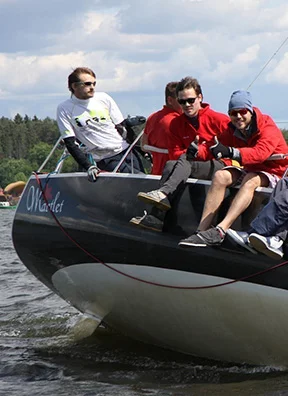
Bareboat Skipper
Recreational sailing yacht skipper of vessels up to 78 feet
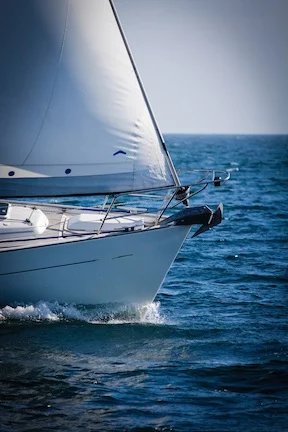

Issued documents
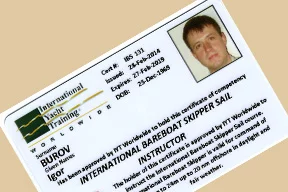
10 days live aboard course on power or sailing yacht. The key objective of the course is to teach candidates to become a recreational sailing yacht skipper and be able to charter and handle big cruising yachts on their own.
Ideal for those who already have little sailing experience and would like to learn coastal navigation.
- navigation at sea
- collision regulations
- practice at sea 200nm
- Skipper on a yacht up to 78ft. / 24m
- 20 miles offshore in day time
- in moderate weather conditions

5-day sailing course on board of a cruising yacht. The main objective of the course is to teach basic sailing terminology, parts and functions, basic sail trim, helm commands, seamanship and safety.
Ideal for candidates with little to no previous sailing experience who wish to train to become an active crew member on a power or sailing yacht.
- no special requirements
- Crew on a yacht up to 78ft. / 24m
- in sight of land and in fair weather
- only with professional skipper
Choose your sailing program. Where to start?
Introduction to sailing, on the coast.
Sailing knots - 3 hours
Understanding of the boat - 3 hours
On the water
Basic keelboat - 3 hours
Basic cruising
Safety on board - 3 hours
Live aboard sailing boat - 5 days
Live aboard power boat - 7 days
Bareboat cruising
Mandatory shore-based course for navigation and collision regulations at sea
Passage planning
Collision regulations
Practice at sea
Sailing boat - 10 days
Motor boat - 7 days
Advanced coastal cruising
Take additional shore-based courses prior to practice at sea
Long-term passage planning
Tidal navigation
Night sailing
Celestial navigation
Live-aboard course in tidal waters
Sailing yacht - 7 days
Upcoming courses
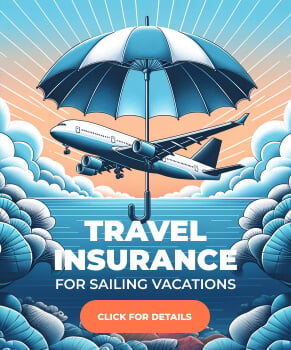
Blue water sailing practice
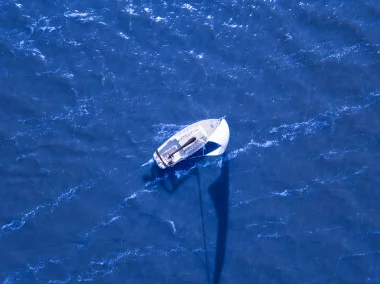
Availability
Competent crew
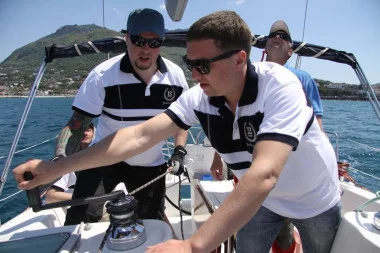
Marine weather forecasting

- Our Sailing Schools:
- Fort Lauderdale
- Virgin Islands
- St. Maarten
- Newport, RI

Sailing Instructors and Staff
The most important part of any sailing school is the staff. We feel very fortunate to have some of the finest instructors in Southeast Florida.
Chris May, Instructor

Captain Chris May has over thirty years of experience operating vessels from 8 to 800 feet, from the Chesapeake Bay to the straits of Kattegat. As a trainer for the Dale Carnegie organization, he developed an amenable style, coaching people to achieve their ambitions. He now leads and/or teach sailors and divers, helping others to enjoy venturing on, and under, the sea.
Chris has a BSME from Tulane University, a MSME from the Naval Postgraduate School and served as a Surface Warfare Officer in the US Navy for 12 years.
Chris is certified to to teach ASA 101 - 106 and has been an ASA Outstanding Instructor in 2017, 2019 and 2020.
Dick Dawson, Instructor · Gail Dawson, Chef

Captain Dick Dawson grew up in Chicago and started sailing on Lake Geneva, Wisconsin where he spent his summers. He was very active in the Boy Scouts of America and achieved their highest rank of Eagle Scout. Along the way he participated in every water sport you can imagine, including white water canoeing, water skiing, scuba diving and under water basket weaving to mention a few! But sailing has always been his love and he just enjoys hanging around boats and docks. He believes there must be some salt water in his blood.
Captain Dick met his wife, Gail, in Iowa while working on his B.S. degree in biology. After college, the Navy took them to California and Captain Dick, who was a Commissioned Naval Officer, spent two tours of duty in Vietnam, one as the skipper of a Patrol Craft Fast patrol boat commonly know as a “Swift Boat”.
After his active duty service he went to work in the petroleum industry in San Francisco, selling bunker fuel to ships all over the world. It was here that he first started teaching sailing for boy’s camps and bought his first yacht, a 30 foot Coronado which he sailed on San Francisco Bay and the California coast.
After raising three great kids, Gail and Dick quit the corporate rat race, sold their house, cars and most of their worldly possessions, bought a 51 foot Jeanneau in St Maarten, Netherlands Antilles and commenced cruising throughout the Caribbean and eventually buying a home on the island of St. Maarten. It was here that Captain Dick became a certified ASA Instructor and also started doing yacht delivery work.
Gail, who also loves to sail, is a first class chef and enjoys passing on cooking tips for food preparation and storage, unique to cruising yachts, to students.
Captain Dick is certified to teach ASA course levels 101 – 106, plus 114 catamaran courses. He has taught seasonally with Blue Water Sailing School since 2008 and has earned the USCG 100 ton Master Captain’s License with close to 60,000 NM in his log book. He has been an ASA Outstanding Instructor in 2018 and 2020.
Jaye Melanson, Instructor

Captain Jaye Melanson’s boating experience began early, with several voyages from the pristine shores of her native Vermont to Cuba and the Bahamas. Her most recent sailing sabbatical was a challenging yet glorious eighteen-month, single-hand excursion. The journey took her down the Eastern Seaboard and throughout much of the Caribbean aboard her beloved Absolutely, a Tartan 37 cruising/racing yacht.
At the culmination of this adventure, Jaye found herself working in Florida. She has since turned her passion for sailing into a career by working as Director of a sailing school, a charter captain, charter agent, an ASA -certified instructor, delivery captain, Director of SailTime Miami, a dive boat captain and dive master.
“I’d have to say I’m happiest while teaching and sharing my love of sailing with our students. Blue Water Sailing School is the best thing that has happened to me, and you’ll say the same if you sail with us.”
Having cruised, dived, moored, fished and explored extensively throughout the East Coast and Caribbean, Captain Jaye is proud to offer her unique perspective and acumen to the yachting world. Her return to port is always filled with smiling faces and fantastic memories.
Jennifer Wirth, Instructor

Captain Jennifer Wirth grew up in Milwaukee, WI. Sailing dinghies on Lake Michigan taught her a love of the sport, and she’s been pursuing it ever since as both a career and a lifestyle. She began her sail-teaching career in college, where she made room in her heavy course load of physics classes to be an instructor for the student sailing club.
After earning her Bachelor of Science degree from the University of Wisconsin at Madison, Jennifer turned her attention to sailing full-time. Following a short stint working aboard a 60-foot ferroconcrete ketch, she downsized to something a little closer to the ocean and more to her taste — a 23-foot Herreschoff cutter. She spent the next six years sailing the Caribbean, living on self-caught seafood and fresh island fruit, enjoying the self-reliance and empowerment of “cruising simple.”
Captain Wirth earned her USCG 100 ton Master Captain’s License in 1995. She runs regular sailing charters out of Miami to the Keys and Bahamas aboard monohulls and catamarans, and fishing trips in the Keys. She’s been an active ASA sailing instructor since 1999, teaching courses up to the Advanced Coastal Cruising level ( ASA 106). When she isn’t sailing or teaching, Jennifer indulges her passion for fishing.
Captain Jen is certified to teach ASA course levels 101 – 106, plus 114 catamaran courses. She has been an ASA Outstanding Instructor in 2017, 2018, 2019 and 2020.
José Miranda, Instructor

Captain Jose Miranda was born and raised on the Caribbean island of Puerto Rico, starting his sailing adventures at age 16. After college and degrees in chemistry and math he travelled in Europe as a fashion photographer, a career which he continues part-time to this day.
Returning to the Caribbean he started sailing as “rail meat” on racing boats, eventually moving up to handling the running backstays on Maxi class yachts.
He has sailed in the Med, Atlantic, Pacific and Caribbean Seas, but the all-time favorite place he has sailed is Antarctica. His favorite time in sailing is when the land dips below the horizon and all that is left is the boat and the sea.
He's style of teaching is very energetic and practical. He loves teaching and he's very patient with students of all levels. When not teaching, he's delivering boats worldwide. He is bi-lingual, English and Spanish. Capt. Miranda is a USCG licensed 100T Master and has American Sailing Association instructor certifications through Advanced Coastal Cruising (ASA 206). He has been an ASA Outstanding Instructor in 2018, 2019 and 2020.
When not on the water, Jose lives in Fort Lauderdale with his wife and two sons.
Tracy Spinney, Instructor

Growing up in the Oklahoma oil fields didn’t offer Tracy Spinney many sailing opportunities. But a family sailing vacation around the Chesapeake in the early 80s conjured a love affair with the wind and waves that’s lasted ever since.
After a successful career on Madison Avenue as a creative director, producer and voice actor, Tracy turned his hobby as a racer/cruiser into a profession, teaching sailing and racing at Manhattan Sailing School, Vineyard Sound and with Blue Water Sailing School. He has delivered yachts from New York to the Caribbean and back again, logging thousands of miles of blue water sailing. Tracy is a USCG Master and ASA Instructor up to ASA 106: Advanced Costal Cruising and looks forward to becoming certified in ASA 108: Offshore Passagemaking. He has been an ASA Outstanding Instructor in 2017.
Tracy refuses to be drawn into the monohull versus catamaran debate by aspiring to have one of each: a mono for racing; a cat for his wife Suzanne, daughters Kristen and Laurel and the family dog, Tiller.
Tony Wall, Instructor

While recovering from a soccer injury in the early 1980s, Captain Tony Wall discovered the pleasures of one-design racing and weekend sailing on Long Island Sound and off the coast of Newport, RI.
“By the mid 80s I was hugely exaggerating my big boat experience, so I could charter large Beneteau and Jeanneau yachts in the Caribbean,” admits Tony. “I soon learned the importance of good training and proper education to add to my pure sailing abilities.”
Now an ASA -certified advanced sailing instructor, Tony has amassed over fifty thousand miles in blue water. A Pacific crossing in 1992 and a transatlantic voyage in 2006 took Captain Tony to many exotic and historically interesting destinations, as well as teaching him the value of self-sufficiency and perseverance. He also has years of racing experience under his belt, and is a three time winner of the Newport–Bermuda race (twice as tactician).
When he’s not busy training a new generation of sailors, Tony is a yacht broker licensed and insured in the state of Florida.
David Pyle, Owner

David Pyle was born and raised far from the sea, in northeast Ohio. He discovered yachting during a college sailing trip in the Bahamas. It was love at first sail, and a new direction in his life was set. After graduating with a degree in math, Dave moved to the San Francisco Bay area and started sailing recreationally.
He eventually got a job as a first mate for a charter company operating in Florida and the Bahamas. With the experience and sea time he gained working for the charter business, Dave attained a US Coast Guard captain’s license and went into business as a delivery and charter captain.
After five years of almost full-time sailing — four transatlantic crossings, numerous trips from the Caribbean to the US, and throughout Florida and the Bahamas — Dave swallowed the anchor and acquired a charter company. A few years, a business partner, and one marriage later, Dave and his wife Monica became the sole owners of Blue Water Sailing School.
Although now he usually sails a desk, Dave is a USCG Master (100 ton), and certified by the ASA to teach courses up to ASA 106: Advanced Coastal Cruising . Besides sailing, Dave enjoys skiing, mountaineering, running and hiking.
We actually went somewhere (Key Largo), rather than returning to the dock each evening. The course was made to be an adventure, as well as simply instructional. The weather was “made to order” — sun and gentle breeze Saturday through Wednesday, then Force 8 for our ‘foul weather instruction’ on Thursday.
I thought it was an excellent, challenging course. It definitely wasn’t a “cruise.” The instructor expected a lot from the students. I like that.
I have nothing but the utmost praise for your entire operation and the quality of the instruction that I received. Al Hatch is a consummate instructor and brings to this activity a love and a passion that is genuine and expansive. I hope to be able to return to Blue Water to experience some of the higher-level courses of instruction, and I certainly would have no trouble at all recommending your company to anyone.

Blue Moscow Guppy Care Guide: Breeding, Tank size, Disease Prevention and More…

Table of Contents
The Blue Moscow Guppy, scientifically known as Poecilia reticulata , Blue Moscow guppies are a popular breed of guppy that is known for its bright blue coloration. They are relatively easy to care for and breed, making them a good choice for both experienced and beginner aquarists.
Guppies, often referred to as “rainbow fish,” belong to the Poeciliidae family and hail from the clear waters of South America, particularly in countries like Venezuela and Trinidad. These small, livebearing fish have become synonymous with versatility, making them an excellent choice for both novice and experienced aquarists.
In this blue moscow guppy care guide, we’ll explore topics such as guppy food, diseases, lifespan, and behavior. We’ll delve into the nitty-gritty of setting up guppy tanks , choosing suitable tank mates, and the art of breeding guppies, including the stunning Blue Moscow variety. Additionally, we’ll discuss the benefits of incorporating live plants in your aquarium and how they can create a thriving ecosystem for these charming fish.
| Blue Moscow Guppies | |
| Poecilia reticulata | |
| Eukarya | |
| Poeciliidae | |
| Animalia | |
| Cyprinodontiformes | |
| Chordata | |
| 1.5 to 2 inches (3.8 to 5 cm) | |
| Beginner-friendly | |
| 10 gallons (38 liters) for a small group | |
| Other guppy varieties, Swordtails, Mollies, Corydoras Catfish | |
| Vibrant shades of blue | |
| High-quality flakes, live and frozen foods, occasional vegetable matter | |
| Temperature: 72°F – 82°F (22°C – 28°C), pH: 6.8 – 7.8, Hardness (GH): 8 – 12 dGH | |
| Prolific livebearers, separate breeding tank for fry | |
| About 2 to 3 years | |
| Peaceful and active swimmers | |
| Heavily planted, proper filtration, and stable temperature | |
| Variable, may require searching specialty stores or online sources | |
| Attractive, long flowing fins | |
| Result of selective breeding for blue coloration |
What is a Blue Moscow Guppy?
A Blue Moscow Guppy is a specific and highly sought-after variety of the common aquarium fish, the Guppy ( Poecilia reticulata ). These guppies are characterized by their stunning blue coloration, which sets them apart from other guppy varieties. Blue Moscow Guppies have a vibrant and iridescent blue hue covering their bodies, which can range from light blue to deeper shades of blue.
These fish are a product of selective breeding, which has been carried out to enhance and stabilize the beautiful blue coloration. Moscow Guppies, which are the ancestors of the Blue Moscow variety, were originally from Russia and Ukraine. Through careful breeding practices, the striking blue color became a defining feature of the Blue Moscow Guppy.
In addition to their captivating blue color, Blue Moscow Guppies generally have long and flowing fins, which add to their visual appeal. Their small size, peaceful nature, and adaptability to a wide range of water conditions make them a popular choice for both beginners and experienced aquarists. These guppies are often used in breeding programs to create and maintain their unique coloration, making them a valuable and beloved addition to freshwater aquariums.
The Origins of Blue Moscow Guppy
The Blue Moscow Guppy originated in Russia and Ukraine, and it is a result of selective breeding. It’s believed that the original Moscow Guppy had a wild-type coloration and a unique, plump body shape. Over time, selective breeding led to the development of the striking blue Moscow variety. The intense blue coloration in these fish is a result of specific genetic traits, and it’s essential to maintain this trait through careful breeding practices.
Blue Moscow Guppy Appearance

One of the primary attractions of Blue Moscow Guppies is their stunning appearance. These fish exhibit unique characteristics that make them stand out in any aquarium.
Blue Moscow Guppy Color Characteristics
- Coloration : As the name suggests, Blue Moscow Guppies are predominantly blue in color, with varying shades of blue across their bodies. Males often have brighter and more vibrant colors than females.
- Fins : Their fins are typically long and flowing, with a transparent appearance, which beautifully complements their blue body.
- Size : Blue Moscow Guppies are relatively small, with males growing to about 1.5 to 2 inches (3.8 to 5 cm) and females being slightly larger, reaching up to 2.4 inches (6 cm).
- Body Shape : They have an elongated body shape with a slightly upturned mouth, which gives them an endearing expression.
Blue Moscow Guppy Tank Size and Setup
Proper tank size and setup are crucial for the health and well-being of your Blue Moscow Guppies.
Setting Up the Perfect Home for Your Blue Moscow Guppies
Creating a cozy and safe space for your Blue Moscow Guppies is super important. We’ll break down how to set up a guppy tank in simple steps, perfect for both beginners and experienced fish lovers.
Tank Size and Requirements:
Tank Size : First, you need to pick the right tank. For a small group of Blue Moscow Guppies, a 10-gallon tank is just right. If you can, go bigger with a 20-gallon long tank, so your fish have more room to swim and play. Bigger tanks are also easier to keep clean, which keeps your guppies healthy.
Filter : A good filter is like a superhero for your tank. It keeps the water clean and healthy for your guppies . The Aquaclear HOB filter or a sponge filter are both great choices. Aquaclear filters are awesome because they work really well, and they’re easy to take care of. Sponge filters are gentle, which is great for guppy babies. They’re like a cozy hideout for the little ones.
Substrate : The stuff at the bottom of the tank is called the substrate. Guppies like fine gravel or sand. It’s comfy for them, and it looks natural. CaribSea and Seachem are brands that make good substrates. Be sure to rinse it well before you put it in the tank to get rid of any dust and dirt.
Heater : Guppies are tropical fish so they need warm water. To keep the temperature just right, you need a heater. Heaters from brands like Eheim, Fluval, and Aqueon are super at keeping the water just the way guppies like it. Make sure to pick a heater that’s the right size for your tank.
By following these steps, you’ll have a comfy home ready for your Blue Moscow Guppies. They’ll love the space, the clean water, and the warmth. Plus, you can watch them swim and play in their beautiful tank. So, get started and enjoy your underwater adventure with your guppy friends!
Blue Moscow Guppy Water Parameters
Maintaining the right water parameters is essential for the well-being of your Blue Moscow Guppies.
Water Parameters
| 72°F – 82°F (22°C – 28°C) | |
| 6.8 – 7.8 | |
| 8 – 12 dGH | |
| 0 ppm | |
| < 40 ppm |
Guppies are adaptable fish, but maintaining stable and appropriate water conditions is crucial to prevent stress and diseases.
Feeding Your Blue Moscow Guppies: A Tasty Adventure

Feeding your Blue Moscow Guppies is like hosting a delicious buffet for your underwater friends. Let’s dive into what to feed them, including some yummy options you can find online.
Guppy Food Basics:
- High-Quality Flakes : Blue Moscow Guppies love high-quality flake food. It’s like their favorite snack! Brands like Tetra and Hikari offer great options. TetraMin Tropical Flakes and Hikari Micro Pellets are popular choices. These flakes are packed with all the good stuff guppies need to stay healthy and show off their beautiful colors.
- Live and Frozen Foods : Sometimes, your guppies need a fancy dinner. Live or frozen foods like brine shrimp, daphnia, and bloodworms are a real treat. You can find frozen food options from brands like San Francisco Bay Brand, Omega One, and Hikari. For brine shrimp, you can get San Francisco Bay Brand Freeze-Dried Brine Shrimp. Your guppies will swim with joy when they see these tasty bites.
- Vegetable Snacks : Guppies also enjoy a veggie snack now and then. Think of it as their salad. Blanched spinach or cucumber slices are like their crunchy treats. Just make sure to remove any uneaten veggies after a few hours, so they don’t mess up the water.
- Feeding Routine : Feed your guppies 2-3 times a day, but only what they can eat in about 2-3 minutes. Don’t overfeed them; it can make the water messy, and we want to keep their home clean and comfy!
Guppy feeding options that you can find online:
- TetraMin Tropical Flakes : These flakes from Tetra are a guppy favorite. They’re packed with all the nutrients guppies need to stay strong and colorful. You can find TetraMin Tropical Flakes on popular online marketplaces like Amazon.
- Hikari Micro Pellets : Hikari’s Micro Pellets are specially made for smaller fish, like guppies. They’re easy to eat and help guppies grow well. You can order Hikari Micro Pellets online from reputable websites like Chewy.
- San Francisco Bay Brand Freeze-Dried Brine Shrimp : Treat your guppies to a gourmet meal with freeze-dried brine shrimp from San Francisco Bay Brand. It’s like seafood for your fishy friends. You can find this delicious option on websites like Petco.
- Omega One Frozen Bloodworms : Omega One offers high-quality frozen bloodworms that your guppies will adore. These are available for purchase on websites like Chewy.
Remember, when shopping online for guppy food, read reviews and check the seller’s ratings to make sure you’re getting top-quality products. Your guppies will thank you for the tasty meals, and you’ll love watching them grow, thrive, and flaunt their vibrant Blue Moscow colors. Feeding time is a chance to bond with your fish and make sure they’re happy and healthy. Enjoy the feeding frenzy!
Blue Moscow Guppy Diseases, Treatment, and Prevention
Guppies, including Blue Moscow Guppies, are susceptible to various diseases. Being informed and proactive is essential to keep your fish healthy.
Common Diseases
| White cysts on the body and fins, flashing behavior | Use a suitable ich treatment. Raise the temperature to 86°F (30°C) to speed up the parasite’s life cycle. | |
| Torn, frayed, or disintegrating fins | Isolate affected fish and treat with antibiotics. Improve water quality. | |
| Bloated appearance, raised scales | Isolate affected fish, treat with antibiotics, and improve water quality. |
Preventing diseases is as crucial as treating them. Maintain excellent water quality, avoid overstocking, and quarantine new fish before adding them to your main tank.
Blue Moscow Guppy Tank Mates
Choosing suitable tank mates is essential to ensure a peaceful and harmonious aquarium community.
Compatible Tank Mates
- Other Guppies : Blue Moscow Guppies get along well with other Guppy varieties like Blue Cobra Guppy , Red Cobra Guppy , Cobra Guppies , Koi Guppy . However, avoid mixing them with aggressive strains.
- Swordtails : Swordtails share similar water parameter requirements and make great tank mates.
- Mollies : Mollies are peaceful fish that can coexist with Blue Moscow Guppies.
- Tetras: tetras like the Neon Tetra or Cardinal Tetra make great tank mates for your guppies
- Corydoras Catfish : These small catfish species are excellent bottom-dwellers and help keep the tank clean. Salt and Pepper Catfish , Sterba’s Pepper Cory Catfish Corydoras
Avoid aggressive or nippy fish like some tetras and barbs, as they may stress or harm your Guppies.
Blue Moscow Guppy Breeding
Breeding Blue Moscow Guppies can be a rewarding experience. These fish are prolific breeders, and their vibrant colors make the offspring equally stunning.
Breeding Tips
- Separate Breeding Tank : Set up a separate breeding tank with fine-leaved plants or a breeding trap.
- Mating Behavior : Blue Moscow Guppy males display courting behavior, often zigzagging in front of females. Females can store sperm, so one mating can result in multiple pregnancies.
- Gestation Period : The gestation period is approximately 21-30 days, after which the female gives birth to live fry.
- Fry Care : Transfer the fry to a separate nursery tank to protect them from being eaten by adult fish. Provide them with finely crushed flakes and baby brine shrimp.
Blue Moscow Guppy Plants
Incorporating live plants into your Blue Moscow Guppy’s tank not only enhances the aesthetics but also contributes to their well-being.
Recommended Plants
- Java Moss : This moss provides ample hiding places for fry and helps maintain water quality.
- Amazon Sword : Its broad leaves offer shelter and mimic their natural habitat.
- Hornwort : An excellent option for adding vertical elements to the tank. It also provides cover for fry.
- Anacharis : This fast-growing plant helps with water filtration and oxygenation.
- Duckweed : Floating plants like duckweed offer shade and security, especially for the Blue Moscow Guppy fry.
While live plants can thrive in Blue Moscow Guppy tanks, it’s essential to monitor their growth and trim them as needed to prevent overcrowding.
Are Blue Moscow Guppies Rare?
Blue Moscow Guppies, while not extremely rare, are considered a specialty variety. They may not be as readily available as the more common guppy strains, but they are still popular in the aquarium hobby. The availability of Blue Moscow Guppies can vary depending on your location and the suppliers in your area. You may need to visit reputable local fish stores or search online to find these beautiful guppies. Keep in mind that the popularity of guppy strains can fluctuate, and some passionate breeders may specialize in Blue Moscow Guppies, making them more accessible.
How Many Guppies Should I Keep Together?
For beginners and small tanks, it’s recommended to keep a small group of guppies together. A good starting point is to keep 3 to 5 guppies in a 10-gallon tank. This allows them to socialize and exhibit their natural behaviors. However, if you have a larger tank, you can keep more guppies. Just be cautious not to overcrowd the tank, as proper space and water quality are essential for their well-being.
How to Take Care of Guppies for Beginners:
Taking care of guppies is perfect for beginners in the aquarium hobby. Here’s a simple guide:
- Tank Setup : Set up a tank with appropriate size and equipment. Follow the guidelines mentioned earlier, which include filtration, substrate, and plant choices.
- Water Parameters : Maintain clean water with the right temperature (72°F to 82°F or 22°C to 28°C), pH level (6.8 to 7.8), and hardness (8 to 12 dGH).
- Feeding : Feed high-quality flake food and occasionally supplement with live or frozen foods. Remember not to overfeed.
- Tank Mates : Choose peaceful tank mates that are compatible with guppies, such as other guppy strains, swordtails, mollies, and small catfish like Corydoras.
- Disease Prevention : Keep an eye on your guppies for any signs of illness. Prevent diseases by maintaining excellent water quality and quarantining new fish before adding them to the tank.
- Breeding : Guppies are prolific breeders. If you want to breed them, separate fry from adult guppies to protect the little ones and provide proper care.
- Enjoy : Most importantly, enjoy watching your guppies. They are active and colorful fish that can provide hours of entertainment.
Do Guppies Need a Cycled Tank?
Yes, guppies, like most aquarium fish, benefit from a cycled tank. A cycled tank means that beneficial bacteria have established themselves in the aquarium and can convert harmful ammonia and nitrites into less harmful nitrates. This biological filtration process helps maintain good water quality, which is essential for the health of your guppies.
Cycling a tank is especially important in the early stages of setting up your aquarium. It ensures that your tank is capable of handling the waste produced by your guppies and helps prevent harmful spikes in ammonia and nitrite levels. To cycle a tank, you can add a source of ammonia (e.g., fish food or pure ammonia) and allow the beneficial bacteria to develop over a few weeks. Once the tank is cycled, it’s ready for your guppies.
In summary, Blue Moscow Guppies are not extremely rare but are considered a specialty variety. For beginners, start with a small group of guppies, maintain proper tank conditions, and ensure your tank is cycled to provide the best care for these lovely fish. Enjoy your guppy-keeping journey!
Blue Moscow Guppies are a striking addition to any aquarium, admired for their captivating colors and unique appearance. To ensure the well-being of these beautiful fish, it’s crucial to pay attention to tank size and setup, maintain proper water parameters, provide a balanced diet, and be vigilant about diseases and their prevention. When considering tank mates, compatibility is key, and for those interested in breeding, following best practices will lead to a rewarding experience. By incorporating live plants, you create an environment that not only showcases their beauty but also supports their health. Whether you’re a seasoned aquarist or a beginner, Blue Moscow Guppies can be a fascinating and rewarding addition to your aquatic hobby.
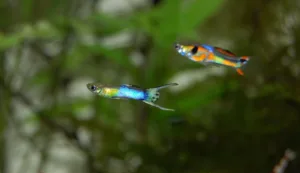
How to Set Up a Guppy Fish Tank: The 10 Step Guide for Beginners on setting up a guppy fish tank
In this ultimate guide on how to set up a guppy fish tank we will be going through the steps on guppy fish tank setup.
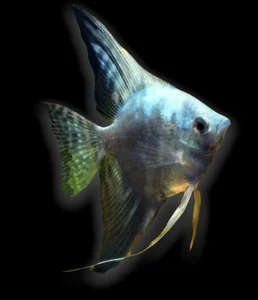
Smoke Angelfish Care Guide: Tank Setup, Breeding, Disease Prevention and More…
The smoke angelfish, also known as the smokey angelfish, is a popular and attractive aquarium fish. It belongs to the angelfish family (Cichlidae) and is

Zebra Angelfish Care Guide: Tank Setup, Breeding, Disease prevention and more…
The Zebra Angelfish, also known as Pterophyllum scalare var. Striata, is a variant of the freshwater angelfish. It is characterized by vertical black stripes on
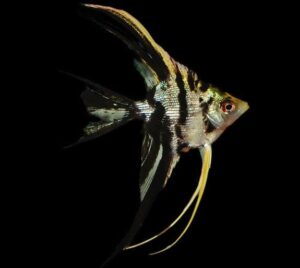
Marble Angelfish Care Guide: Tank Setup, Breeding, Disease Prevention and More…
A Marble Angelfish is a popular freshwater aquarium fish known for its striking appearance. This species belongs to the Cichlidae family and is a variant

Lee Johnson
Aquarium enthusiast.
I love sharing my knowledge about all things aquarium related. I have been keeping aquariums for over 20 years and cannot imagine a life without an aquarium.

Angelfish Care Guide | Tips for Breeding, Best Tank Setup, tankmates and more

Platinum Koi Guppy | Care Guide – Breeding, Tank Setup, Where to Buy and More…

Emerald Green Guppy Care Guide
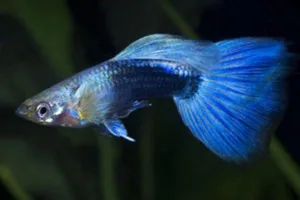
Neon Blue Guppy: A Comprehensive Guide to Care, Breeding, and More

Unlocking the Optimal Tetra Fish Water Temperature: A Comprehensive Guide

IMAGES
COMMENTS
Bluewater offers a full range of yacht crew training courses and yacht crew jobs for seasoned crew members as well as those just starting out in the superyacht industry. At Bluewater, we guide you through your chosen superyacht career pathway and ensure each yacht crew member has access to the required modules to reach the highest levels of professional yachting - from stewardess to chief ...
We offer MCA and RYA courses in Antibes (France) and Palma (Spain), tailored to yacht crew at every stage of their yachting journey. Our comprehensive training encompasses all essential modules to support seafarers in achieving the highest standards of professionalism within the yachting industry. View full Price List Book Courses.
One company, one complete service - Luxury yacht charter & yacht brokerage also offering crew training courses, yacht crew placement & yacht management in Antibes, Fort Lauderdale, Moscow & Palma
A Week of Sailing Education, a Lifetime of Adventure . Blue Water Sailing School is an American Sailing Association certified sailing school with lessons for sailors at every experience level. Our week-long, live-aboard cruising and sailing courses give dedicated students the experience and confidence to achieve their dreams of nautical adventure. We're based in Fort Lauderdale, Florida and ...
Founded in 1991, Bluewater is a leading yachting company catering to all sectors of yachting sector - Yacht Brokerage, Yacht Charter, Yacht Management, Crew Training and Crew Solutions. Bluewater is able to sell, charter and manage yachts on which the crew were recruited and trained in-house. Bluewater USA Fort Lauderdal e training center is a ...
Located in Europe and USA, Bluewater Yachting is a Mediterranean-based Yacht Crew Placement and Training agency. Bluewater offers a wide-range of courses from STCW to Masters 3000, AEC to Y2 qualifications and all levels of the GUEST program in Fort Lauderdale (Formerly ICT Fort Lauderdale) as well as in Antibes and Palma.
The Blue Water Sailing School Fleet Dufour Gib'Sea 43: Third Wish. An excellent all-around cruising yacht, the Dufour Gib'Sea 43 is built to combine comfort with performance. There's ample space and headroom in the well-lit areas below deck, and access to the ship's mechanical and electrical systems is easy and well-defined.
A Full Range of Courses. We are one of the only schools in the United States to offer the entire range of sailing education — from Basic Sailing to Offshore Passagemaking. Our advanced courses cross the Gulf Stream to the Bahamas, and we do an offshore passage every year. In 1997 we were the first ASA school to do a Transatlantic Passage.
Yachting World is the world's leading magazine for bluewater cruisers and offshore sailors. Every month we have inspirational adventures and practical features to help you realise your sailing ...
Membership in our Bareboat Chartering Club—As long as you remain a student you will always receive chartering privileges. This is a value of $300 per year. With an American Sailing Association certification (optional) you'll receive their official log book, certification documents, monthly publication and more.
Featured: Blue Otter, Catalina 36′ ... More time on the water than any other school. Beginning Sailors Begin with Intro to Keelboat. Super fun sessions all on the water. ... Catalina Yacht Anchorage 13505 Bali Way Marina Del Rey, CA 90292 Tel: (310) 823-5545. [email protected].
Superyacht. Career Paths. These career pathways outline the training and other criteria required to advance in the superyacht industry. Our skilled team of training advisors can assist you with planning the path that is right for you whatever your interest or skillset. Contact an advisor VIEW OUR COURSES.
Blue Water Sailing School is an American Sailing Association certified sailing school, offering courses in Florida, the Virgin Islands, St Maarten and New England. Blue Water Sailing School Our week-long, live-aboard cruising and sailing courses give dedicated students the experience and confidence to achieve their dreams of nautical adventure.
Fun in the Sun Yachts is a proud partner of Blue Water Sailing School! Contact Blue Water Sailing School. Address. 924 NE 20th Avenue. Fort Lauderdale, FL 33304, US. 1 800 327 0228. [email protected] Follow us. FacebookInstagramYouTube.
The classes offered via Private School are the same as the standard courses, but we can also customize a program to match your specific needs. We offer an unlimited choice of courses and schedules: Oct 15 - July 11. July 12 - Oct 14. Fort Lauderdale (monohull) $8,995. $8,995. Fort Lauderdale (catamaran) $14,995.
Bluewater Yachting. 4.6 Average rating: Read reviews. STCW Basic Safety Training is comprised of 4 modules taken over 5 days. 1. Personal Survival Techniques (PST) - 1.5 days. 2. Personal Safety and Social Responsibility (PSSR) - .5 day. 3. Fire Prevention and Fire Fighting (Basic Fire fighting) - 2.0 days.
Store. Contact. Blue Water Sailing School. Fort Lauderdale, South East Florida. (954) 763-8464|bwss.com. Sailing Education is All We Do. We are exclusively a sailing school. One hundred percent of our efforts are devoted to sailing education and training. Many other schools are adjuncts of charter companies, whose primary goal is to drive as ...
We offer a full range of entry-level training courses in Antibes and Palma. The five-day STCW Basic Safety Training package comprises the MCA-accredited modules: Personal Survival Techniques, Fire Prevention and Fire Fighting, Elementary First Aid and Personal Safety and Social Responsibilities. Together, they form an essential programme of pre ...
12 Knots Sailing School offers 5 to 10 days sailing courses in most exotic destinations. ... The key objective of the course is to teach candidates to become a recreational sailing yacht skipper and be able to charter and handle big cruising yachts on their own. ... Blue water sailing This course is dedicated to those candidates who already ...
Flotilla "Radisson Royal" has 10 perfectly equipped yachts designed for year-round entertaining excursion cruises on the Moscow River with restaurant service aboard. Our company organizes cruises 365 days a year. Flotilla "Radisson Royal, Moscow" combines picturesque views of Moscow sights with excellent catering service.
Captain Dick is certified to teach ASA course levels 101 - 106, plus 114 catamaran courses. He has taught seasonally with Blue Water Sailing School since 2008 and has earned the USCG 100 ton Master Captain's License with close to 60,000 NM in his log book. He has been an ASA Outstanding Instructor in 2018 and 2020.
Show more. Use scrolling. Flotilla Radisson Royal: Cruises and excursions on Moscow River on river yachts and trams, official website. Cruises all year round, in summer and winter! > Purchase tickets online.
The Blue Moscow Guppy, scientifically known as Poecilia reticulata, Blue Moscow guppies are a popular breed of guppy that is known for its bright blue ... Maintaining the right water parameters is essential for the well-being of your Blue Moscow Guppies. Water Parameters. Parameter Optimal Range; Temperature: 72°F - 82°F (22°C - 28°C ...